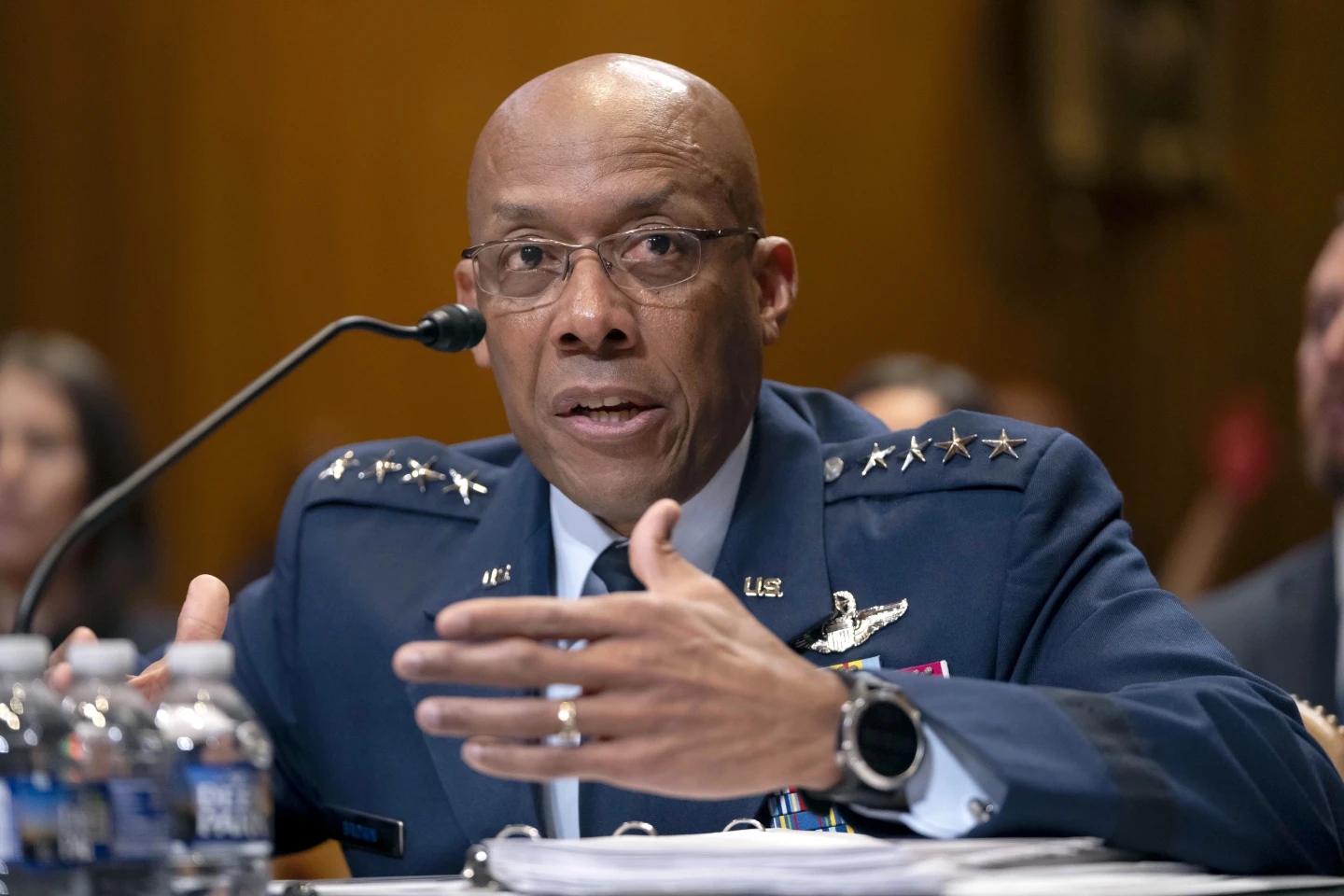When the Senate confirmed Gen. CQ Brown Jr. as Air Force chief of staff in 2020, President Trump celebrated, calling it a “historic day for America!” and praised Brown as a “Patriot and Great Leader.” Fast forward to February 21, 2025, when Trump fired Brown, who had since become the top military officer in the country. This time, the tone was much more reserved. Trump’s post about Brown’s dismissal was one of several moves that included firing five other Pentagon leaders. Some critics are worried that these decisions are turning the military into a political tool, eroding its long-standing commitment to being nonpartisan.
On Capitol Hill, many Republicans didn’t seem too troubled by Trump’s actions, despite having previously praised Brown. Sen. Mike Rounds from South Dakota said, “The president has the ability to decide who he wants as chairman of the Joint Chiefs. Gen. Brown has done an excellent job, but it’s the president’s call.” He added he would have been happy to see Brown stay but acknowledged the president’s authority. Sen. Thom Tillis from North Carolina compared the dismissals to how President Obama had shaken up military leadership during his tenure, but said he was still processing whether Trump’s moves were truly unprecedented.
Along with Brown, Trump also fired other top officials, including Adm. Lisa Franchetti, the Navy’s first female leader, and Gen. James Slife, the vice chief of the Air Force. But Brown’s firing got the most attention. He had risen through the ranks as one of the Air Force’s top aviators but attracted conservative backlash after speaking about his experiences as a Black man in the military, particularly following the murder of George Floyd.
Sen. Jeanne Shaheen, a Democrat from New Hampshire, criticized Brown’s dismissal, saying it sends a message to service members that “your expertise and service is not what’s important. What’s important is your political loyalty to Donald Trump.” Brown had become only the second African American to lead the Joint Chiefs, following the late Gen. Colin Powell, and was confirmed to the position with broad bipartisan support in 2023. But after his firing, few Republicans came to his defense.
Some Republicans, like Sen. Josh Hawley from Missouri, defended Trump’s right to pick his own team, saying, “The president is entitled to have his team, including on the Joint Chiefs.” Hawley didn’t offer specifics on why Brown had to be removed before completing his term but hinted that Trump would give an explanation soon.
Trump’s firings sparked some mild pushback. A bipartisan group of House members wrote to Defense Secretary Pete Hegseth, urging clear and transparent criteria for firing top military officials. Sen. Susan Collins, a Republican from Maine, said Brown and the others had been doing a good job, though she acknowledged the president’s authority in making such decisions. “But I don’t think the firing was warranted based on their merits,” Collins added.
Some people supported Trump’s actions, including Rep. Derrick Van Orden, a Republican from Wisconsin and former Navy SEAL. He criticized the Pentagon’s leadership under Biden and called for a “clean slate” at the Department of Defense.
Trump’s nominee to replace Brown is retired Air Force Lt. Gen. Dan “Razin” Caine, a veteran F-16 pilot with extensive experience, including combat in Iraq. However, Caine doesn’t have all the required assignments needed by law to serve as Joint Chiefs chairman. Trump can waive these requirements, but it’s worth noting that Brown didn’t need a waiver when Biden nominated him, as he had met all the criteria.
Some Democratic senators are concerned that these firings signal Trump’s growing political influence over the military, especially given his past rhetoric about involving the military in domestic policies. Sen. Richard Blumenthal, a veteran and Senate Armed Services Committee member, called the firings a “travesty” and warned they could hurt military recruitment and retention by sending the message that political loyalty to the president matters more than skill and experience. He mentioned that several Republican colleagues had privately shared concerns with him but weren’t ready to speak out publicly.




